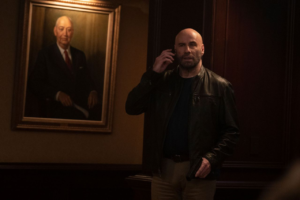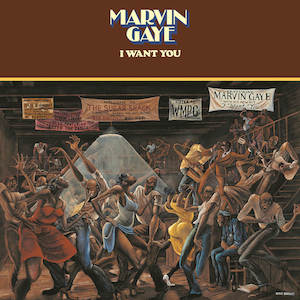Director James Gray and actor Brad Pitt collaborate in the slow-burning space drama Ad Astra from 20th Century Fox. It’s set in the near future, and Major Roy McBride almost loses his life when an unknown power source strikes the solar system. Sixteen years earlier, Roy’s father, famed astronaut H. Clifford McBride (Tommy Lee Jones), led a mission to Neptune but disappeared. When Roy learns there’s a chance his father may be alive, he sets outs to mars to discover the truth for himself.
First things first, if you are going to Ad Astra expecting aliens, mind-blowing special effects, and a fast-paced space epic, then you may want to skip it all together. Director James Gray and screenwriter Ethan Gross’s film is less concerned with a thrilling movie-going experience, as they want their movie to focus on the realism of space travel while focusing on the bond between a father and son.
In the lead role, Brad Pitt portrays the everyman that audiences have come to know with his acting. Half of Roy is upset with his father for arguably abandoning him, while the other half wants a relationship with his dad. The layered scenes between Brad Pitt and Tommy Lee Jones were actually a bit heartbreaking to watch.
While I previously mentioned that this is a slow burn, there is one exciting sequence involving space pirates that is an excellent experience on the big screen. There are also some great moments with killer baboons that were somewhat creepy. James Gray really should venture into the action genre if that sequence is an indication of his skill when it comes to directing an action scene. I must also credit James Gray with some of the shots of outer space that were mesmerizing.
Ad Astra isn’t for everyone, and while exiting the screening, I mentioned to my wife that I see a considerable divide coming for the film; in particular between critics, scientists, and mainstream audiences. One of the things you will notice, there’s no actual humor in the movie. If the intent by the screenwriters was to show there is no time to laugh in space, then they succeeded.
The supporting cast in the film doesn’t have much to do, though. In hindsight, it may have suffered by casting known actors in the secondary roles. Familiar faces such as Liv Tyler, Ruth Negga, Kimberly Elise, and John Ortiz all receive less than fifteen minutes of screen time. With lesser-known faces, the results may have been more substantial. The science in the film can be a bit confusing for those who aren’t deep into the subject. There were a few moments where I sat scratching my head about what was actually going on.
Ad Astra is a slow-burning drama with science fiction elements. While I did enjoy the acting in the film and a few of the set pieces, there wasn’t enough for me to recommend checking it out in the cinema. If you’re into science, then you may like it; otherwise, you’d be better off waiting for the home market.
Final C-






